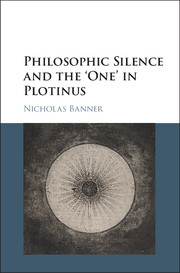Book contents
- Frontmatter
- Contents
- Preface
- List of Abbreviations
- Introduction
- PART I The Cultural Roots of Platonist Philosophic Silence
- 1 De philosophorum Græcorum silentio mystico: Preliminaries
- 2 The Silent Philosopher
- 3 Perennial Wisdom and Platonist Tradition
- 4 Plotinus and ‘The Ancients’: Tradition, Truth and Transcendence
- PART II The Transcendent Absolute, the Ineffable and Plotinian Poetics of Transcendence
- Conclusion
- Appendices
- Select Primary Bibliography
- Secondary Bibliography
- Index
4 - Plotinus and ‘The Ancients’: Tradition, Truth and Transcendence
from PART I - The Cultural Roots of Platonist Philosophic Silence
Published online by Cambridge University Press: 16 March 2018
- Frontmatter
- Contents
- Preface
- List of Abbreviations
- Introduction
- PART I The Cultural Roots of Platonist Philosophic Silence
- 1 De philosophorum Græcorum silentio mystico: Preliminaries
- 2 The Silent Philosopher
- 3 Perennial Wisdom and Platonist Tradition
- 4 Plotinus and ‘The Ancients’: Tradition, Truth and Transcendence
- PART II The Transcendent Absolute, the Ineffable and Plotinian Poetics of Transcendence
- Conclusion
- Appendices
- Select Primary Bibliography
- Secondary Bibliography
- Index
Summary
Mystery is neither a set of abstruse doctrines to be taken on faith nor a secret prize for the initiated. Mystery is a referential openness into the depths of a particular tradition, and into conversation with other traditions. The referential openness is fleeting. As Plotinus said, as soon as one thinks one has it, one has lost it. It is glimpsed only in the interstices of the text, in the tension between the saying and the unsaying.
Sells 1994, 8.I have argued that there were certain typical themes which characterised a Platonist perennialism discernible across a wide spectrum of second-century Platonist thought. The significance of this line of argument for understanding Plotinus is the subject of the present chapter. Plotinus, like Plutarch, Numenius and Celsus, believed in the wisdom of the ancients, and the Enneads show a thoroughgoing deference and culture of respect toward the canonic sages of the past. But most importantly for this discussion, Plotinus applies a hermeneutic of enigma and esoteric meaning to this tradition in a way which seems to have been unprecedented and innovative: like the Middle Platonists he finds wisdom hidden in myths and rituals, but unlike them, he also unearths it, with the same methodology, in Plato.
The tradition to which Plotinus allies himself has an ‘open’ side – the realm of philosophical dialectic, the disputes and liberties proper to a culture of parrhêsia and the ‘republic of letters’ of Græco–Roman Hellenism – but there is no corner of Plotinian philosophy which is not also informed by an esoteric privileging of knowledge. This chapter will help to nuance and complete our picture of the ‘open’ aspects of Plotinus’ project with a contextualised understanding of the ways in which the practice of esoteric reading and writing define his relationship to – or construction of – a perennial tradition.
The Plotinian Idea of Tradition
In light of the well-known remark of Plotinus, cited at the beginning of the previous chapter, that he is not an innovator but an exegete of the ancients, and of the evidence presented subsequently for a widespread Platonist tradition of perennialism, it will come as no surprise that Plotinus may profitably be described as a Platonist perennialist. While the formulation of Platonist perennialism formulated in the present work is in some respects new, the fact that Plotinus saw himself as indebted to an immemorial tradition is well known.
- Type
- Chapter
- Information
- Philosophic Silence and the ‘One' in Plotinus , pp. 125 - 144Publisher: Cambridge University PressPrint publication year: 2018



